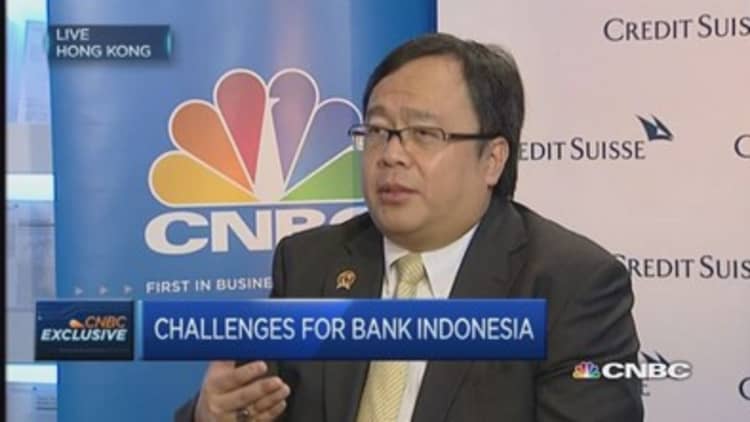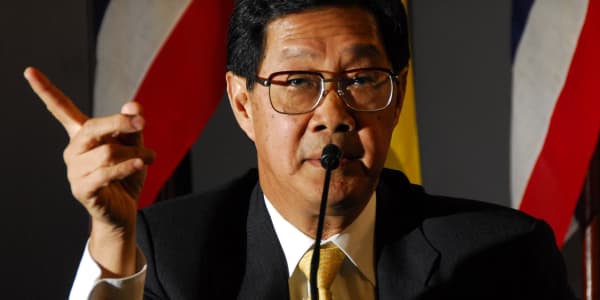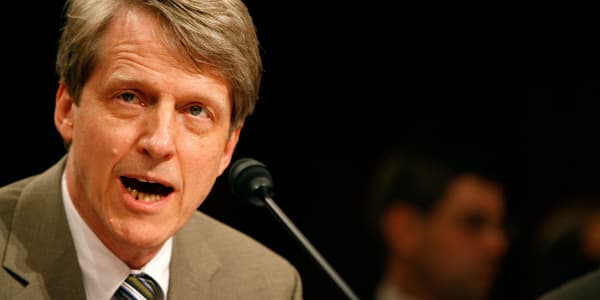
Indonesia faces a delicate balancing act of pursuing stability, reforms and growth as it attempts to shield itself from a potential U.S. interest rate hike later this year, the country's finance minister told CNBC.
"Whatever is going to happen with the normalization [of U.S. monetary policy], we in Indonesia have to be ready," Bambang Brodjonegoro told CNBC at the 18th annual Credit Suisse Asian Investment Conference in Hong Kong. "That's why our priority right now is to provide a sequence of reforms in order to strengthen our economy."
So far, economic reforms have failed to convince investors of Indonesia's stability amid expectations for a U.S. rate hike. The rupiah has tumbled to its weakest level since the 1998 Asian financial crisis in recent weeks, making it one of the worst performing emerging market currencies this year.
"Of course we are concerned about the value of the rupiah. The central bank will do their part, in terms of monetary policy, but in our part, we are trying to come up with a set of fiscal policy actions, like trying to reduce the current deficit that has been the main reason behind the weakening rupiah,"Brodjonegoro said.
Some of the fiscal policies Brodjonegoro alluded to include anti-dumping taxes to reduce imports as well tax allowances for exporters, which has prompted debate among economists since a cheaper currency is a positive for the country's exports. Indeed, Jakarta has posted three straight months of trade surpluses this year.
"If you look deeper in the structure of our trade balance now, both exports and imports have been slowing down, especially on the imports… What we are trying to prevent now is a [further] slowing down of the economy," the minister said.
Data for 2014 showed gross domestic product hitting a five-year low, presenting a dilemma for the central bank. Bank Indonesia left interest rates steady last week following an unexpected cut in the previous month due to the rupiah's slide, but experts warn that further easing may be needed to boost growth.
Capital concerns remain a worry, Brodjonegoro added. Indonesia is highly dependent on overseas investments, with roughly 40 percent of its national debt held by foreign bond holders.
"Our concern is more on the possibility of sudden reversal, when the Federal Reserve increases their rate. That's why we are trying to maintain the macroeconomic stability, strengthening the fundamentals, in order to deal with any hiccup from a Fed rate hike," Brodjonegoro said. "But at the same time, we need to grow especially since 2015 is the first year of the new government."
While Brodjonegoro is definitely anticipating a U.S. rate hike this year, he expects the increase to be small.




